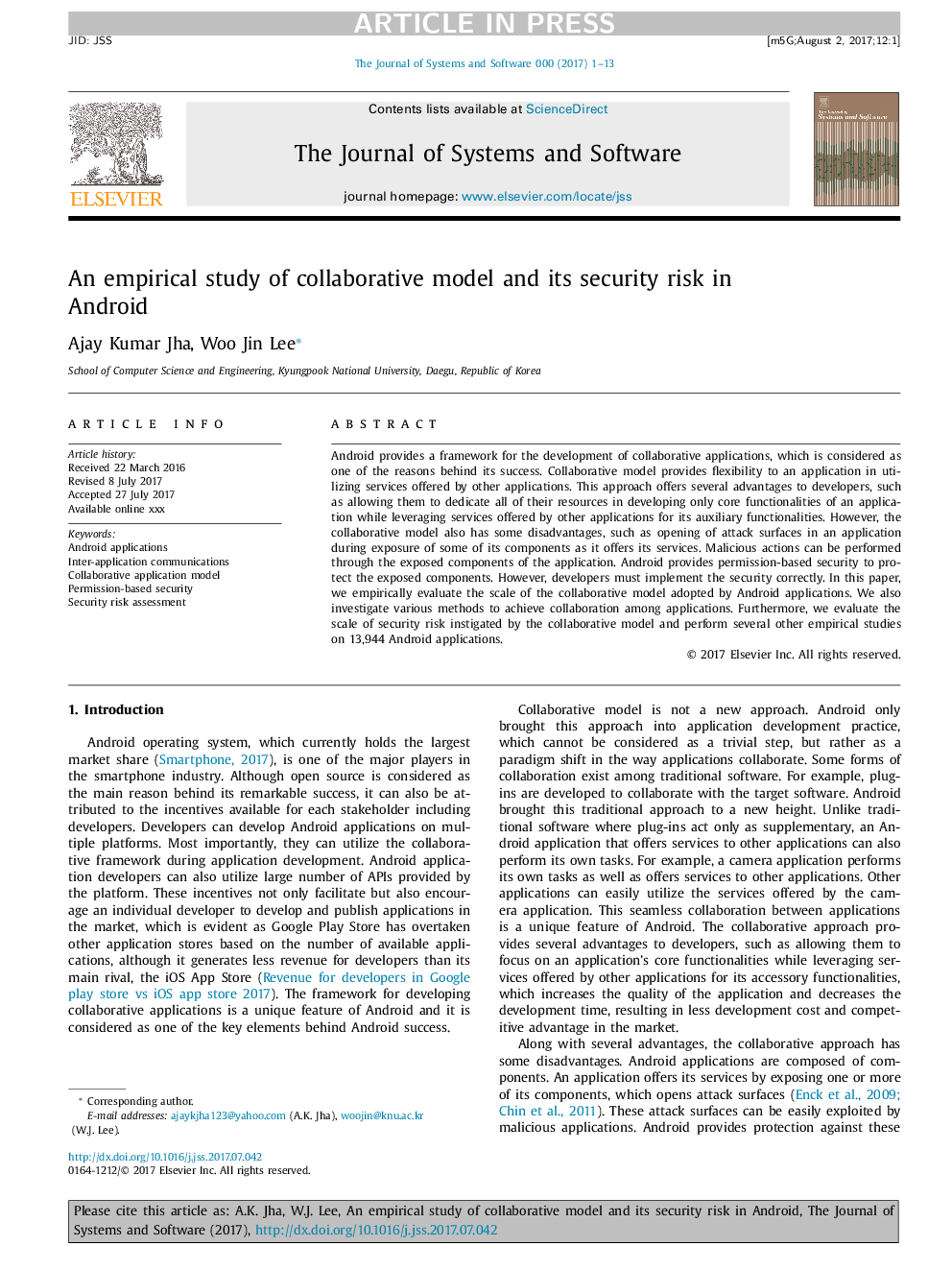ترجمه فارسی عنوان مقاله
یک مطالعه تجربی از مدل مشارکتی و خطر امنیتی آن در اندروید
عنوان انگلیسی
An empirical study of collaborative model and its security risk in Android
| کد مقاله | سال انتشار | تعداد صفحات مقاله انگلیسی |
|---|---|---|
| 146510 | 2018 | 13 صفحه PDF |
منبع

Publisher : Elsevier - Science Direct (الزویر - ساینس دایرکت)
Journal : Journal of Systems and Software, Volume 137, March 2018, Pages 550-562
ترجمه کلمات کلیدی
برنامه های آندروید، ارتباطات بین نرم افزار، مدل برنامه همکاری، امنیت مبتنی بر مجوز، ارزیابی ریسک امنیت،
کلمات کلیدی انگلیسی
Android applications; Inter-application communications; Collaborative application model; Permission-based security; Security risk assessment;

